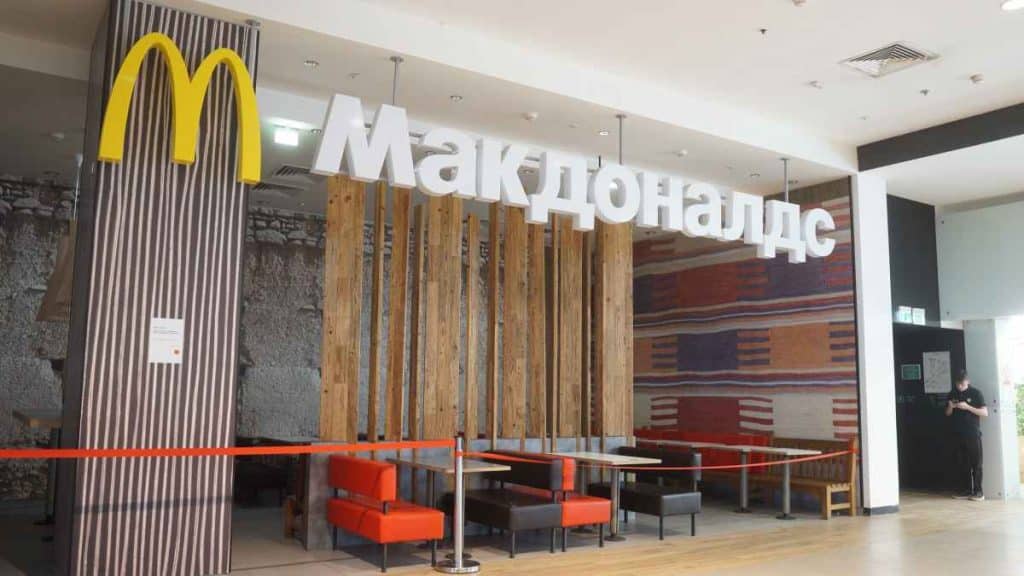Almost two weeks after Russia invaded Ukraine, McDonald’s was under pressure from activists and investors to cut its ties with Russia. As a result, the company announced a temporal closure of its close to 850 outlets in Russia.
According to McDonald’s chief executive, Chris Kempczinski, the withdrawal was a sign of protest against the needless human suffering happening in Ukraine.
Leaving Behind a Long History
While withdrawing its operations in Russia as a sign of solidarity with the people of Ukraine is a noble gesture, the pullout comes at a huge cost to the company. Worse, there is no telling if or when the fast food chain will get back into the business in the country.
Mcdonald’s has a 32-year history in Russia since it opened its first outlet in the 90s when Russia was still part of the USSR. The company also employed over 60,000 people who, according to Kempczinski, had poured their hearts and souls into the brand.
The Fast Food Chain had Made Massive Investments.
However the company has lost more than relationships and years of presence in the country. Over the 32 years, the company invested heavily in infrastructure as it expanded its operations. Some of the infrastructure left behind by the company include a plant outside Moscow that used to process beef, produce sauces, and perform product quality control.
The company had also invested in agronomists from outside Russia to help Russian farmers grow non-native potatoes and bakers from the US, Canada, and Europe to help develop baking systems for the chain. Also, the chain brought in meat experts to help farmers raise cattle that produced the best quality beef and years of modifying its menus to give it a local appeal.
Unlike the US market, where the chain mainly operates as a franchise, it owns almost 84 percent of all its restaurants in Russia. “The company’s challenges highlight the complexities of franchisors seeking to expand their reach in international markets,” says corporate lawyer Jason Power of Franchise.Law.
International Franchisor’s Challenges
If a franchisor fails to address the supply chain properly in their franchise or master franchise agreements, there is a high chance of the franchisor getting into disputes relating to the supply chain.
McDonald’s has been highly successful at dressing some of these challenges through empowering locals and sourcing all their products from the local market to avoid such challenges.
But not all franchisors may have the same muscle power as McDonald’s. So, every franchisor must consider the challenges of offering their products internationally before selling a franchise or master franchise. After evaluating the challenge, the franchisor must also determine who between them and the franchisees are responsible for sourcing the product to ensure the supply chain is uninterrupted.
Why the Supply Chain Agreement Matters
Other challenges facing international franchisors include product adaptability to the foreign market. A franchisor must consider the changes and modifications necessary to make the product more competitive in the market. Even the marketing style will differ because what appeals to the American audience may not appeal to an international audience.
Most franchisors will be very careful to focus on key terms when signing franchise agreements, such as royalty fees, initial fees, development schedules, etc., at the expense of other key things such as the supply chain. The danger of failing to spell out the agreement with the parties will often have a court arbitrator finding the US franchisor responsible for supply chain glitches.


